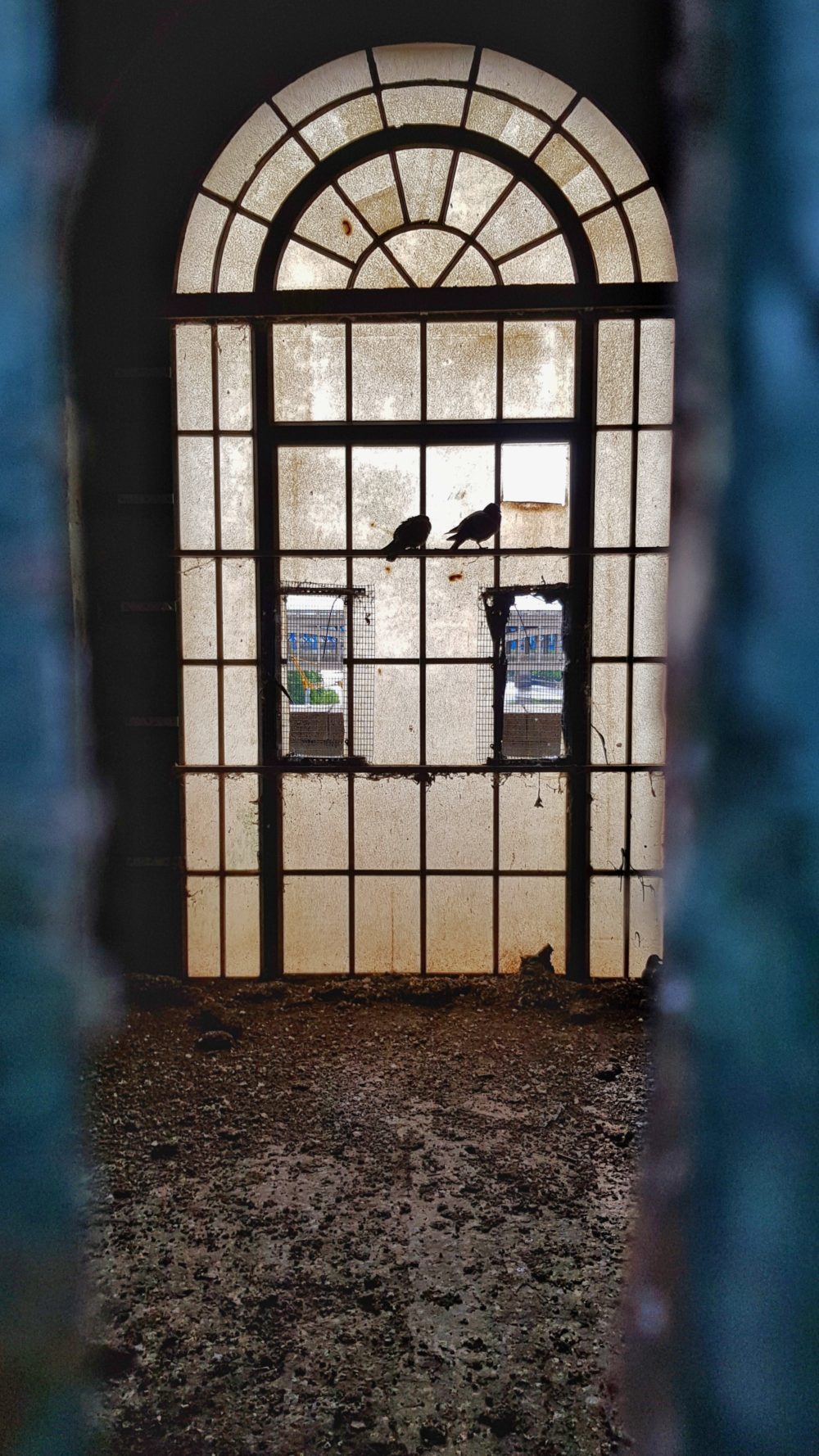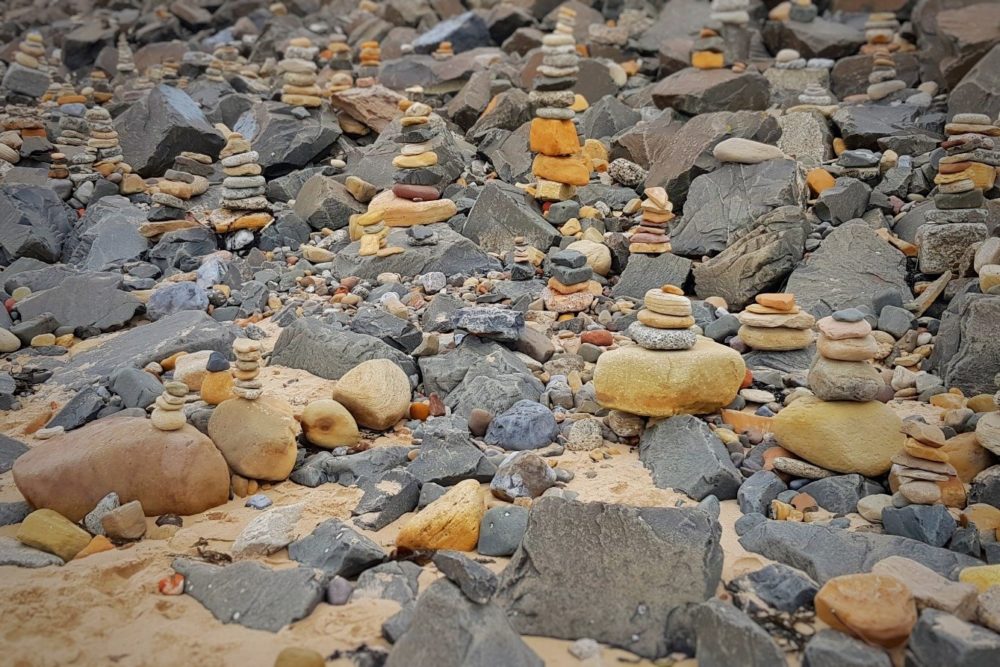30 things I learned in June 2020
2: How Germany’s contact tracing system for covid-19 works.
4: There are four national anthems without lyrics.
5: Over the last month, I’ve received 3,100 work emails.
6: I heard on the radio this morning that Romans painted eyes on their ships because they believe the gods would protect ships with eyes on them. And it made me think: was this the real reason? Will people in two millennia look back at our time and say that we printed crossed-fingers on all lottery tickets because we believed it brought luck (as opposed to it just being a brand)? There are so many things in life which start as superstition but become traditions which are completely divorced from the original beliefs.
7: The Normal People TV series was better than the book. I know people say you can’t compare the two, but I’m doing it anyway.
8: A loose lock meant that I got to peek through a crack in the door into the southwest tower of the Tyne Bridge:

9: Balancing rocks really seems to have become a trend these days. I know this makes me sound grumpy, but I’m not really a fan: there’s something that feels entitled about taking a shared area of natural landscape and putting a personal ‘project’ on it rather than leaving it how it was found.

10: Citizens of Monaco are called Monegasques.
12: When I’m asked to give talks about antimicrobial resistance, I sometimes mention the issue of incorporating antibiotics into ships’ paint to prevent the formation of a biofilm on the hull which allows barnacles to attach. This initially seems like a ridiculous use of a precious resource, but the issue is actually a bit more subtle than it first appears: barnacles create surprisingly high levels of drag, increasing fuel consumption and carbon dioxide emissions from the ship far more than you might first imagine. I was therefore delighted to learn of the invention of HullSkater, which is basically Roomba for ship hulls.
13: What’s the difference between music and language?
15: I missed the news a couple of months ago that Renzi Piano’s replacement for the Ponte Morandi in Genoa has been structurally completed, less than two years after the shocking and tragic collapse.
16: It seems that Instagram’s artificial intelligence can’t reliably distinguish photos of naked people from photos of paintings or statues, even when backed up by 15,000 human reviewers. This is a bit of social media controversy which has been around for years, but has hitherto completely passed me by.
17: Solar panels in space generate more energy than those on Earth because our atmosphere reflects or absorbs over half of the solar energy reaching the planet. This topic popped into my head for no clear reason this morning, and the magic of the internet meant that clarification was only a click away. What a time we live in.
19: The OED defines “suspend” as “to debar temporarily from participation in something.” Today, I’ve seen the BBC using the construction “permanently suspended” for the first time, which seems like a significant moment of change in the use of that word.
20: Food is all about salt, fat, acid, heat… and Samin Nosrat, who is impossibly endearing.
21: “You often cannot innovate before the world is ready.”
22: Grief and paperwork come as a package in the US healthcare system.
23: “My experience of being a person is a continual act of becoming, of creation. If nothing else, you continually have to be another day older. To instead focus on the things that are never going to change—from the day that you are born—is like locking yourself in a room.” That struck a chord with me, which was an interesting and arresting experience because it was said by Lionel Shriver, whose opinions are usually diametrically opposed to my own.
24: What advice on covid-19 social distancing can be given to sex workers?
25: The last episode of The Good Place is almost as good as the last episode of Six Feet Under.
27: Beautifully scented designer alcohol hand gel is a mainstream thing now.
28: This profile of Richard Horton gave me some new insight into his response to covid-19.
29: Midwifery is marginalised in the USA.
30: Fukushima serves as a reminder of the long-term consequences of major incidents on mental health. I worry that the response to covid-19 in the UK suggests we haven’t learned that lesson.
This post was filed under: Posts delayed by 12 months, Things I've learned, AMR, Anny Shaw, Apple, ArchDaily, Ariel Levy, BBC iPlayer, BBC News, Boris Johnson, CNN, Covid-19, Daniel Jonce Evans, Frances Cairncross, Health, Holden Frith, Jackie Bischof, Jerry Ianelli, John Washington, JRSM, Kamran Abbasi, Kashmir Hill, Lionel Shriver, Literary Review, Monaco, Netflix, Newcastle upon Tyne, Oxford English Dictionary, Public Health, Quartz, Renzi Piano, Richard Horton, Sally Rooney, Sam Knight, Samin Nosrat, Six Feet Under, Ssense, The Art Newspaper, The Economist, The Good Place, The New York Times, The New Yorker, The White Company, Time, Tyne Bridge, Whitley Bay.
